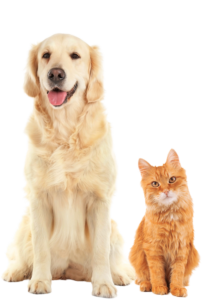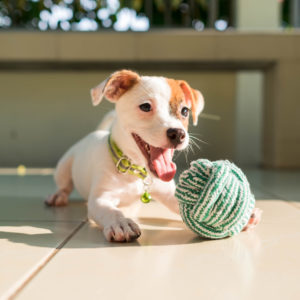The television show Marketplace has an episode that may be of interest to some of our patients and their pet owners. In this episode, Tom Harrington looks into the unregulated business of pet food and uncovers some disturbing details. The segment was aired on CBC in September of 2012. The story revolves around pets, specifically dogs that acquired renal failure after eating chicken jerky treats that were manufactured in China.
A disturbing part of the story is that in Canada, the Canadian Food Inspection Agency (CFIA) is currently not mandated to investigate into this issue because pet food is not regulated in Canada.
The initial concerns have focused around the ingredient ‘glycerine’ as a potential source of the toxicity. However, this link has not been validated. Glycerine is in thousands of foods that are considered safe for pets and people.
It has come to light that one of the jerky treat manufacturing plants in China was found to have falsified documents about the type of glycerin used in the manufacturing of jerky treats. The falsified reports indicated the glycerin used was food grade when in fact it was industrial grade. According to the Food and Drug Administration (FDA) in the United States, plant officials have since been penalized and the issue has been rectified. The report made no link between this finding and illness in pets.
The FDA has not indicated that the jerky treats with the industrial grade glycerin were the cause of the illnesses reported in pets. What we do know is that the FDA found that specific chicken jerky treat products held trace amounts of antibiotic residue. The specific antibiotic they detected is not approved in the U.S. In correspondence with the FDA, Nestle Purina (Waggin’ Train and Canyon Creek Ranch brands) and Del Monte (Milo’s Kitchen Chicken Jerky Treats and Chicken Grillers brands) voluntarily recalled their jerky treat products across the United States.
Here in Canada, there has been no formal recall of any jerky treat products by the CFIA or by Nestle Purina or Del Monte. Costco Canada chose to voluntarily recall the above mentioned products from their Canadian stores. In a statement to CBC News, Costco said it made the decision even though Canadian regulations, “..are not the same as the U.S. regarding residual antibiotics in pet food.”
The question that still needs answering though is whether or not the antibiotic residue is what has been making pets sick. The FDA specifically noted in its report that “…there is no evidence that raises health concerns, and these results are highly unlikely to be related to the reports of illnesses the FDA has received related to jerky pet treats.”
The Southampton Pet Hospital encourages all pet owners to take extra care when choosing a pet treat. As a jerky treat option we recommend the Hill’s Ideal Balance Jerky Treats. Hill’s takes incredible measures to safeguard their diets;
- Hill’s sources meat and poultry ingredients from USDA inspected plants. Lamb and Venison are sourced from New Zealand and Australia.
- They inspect and test high-quality ingredients on-site as part of their stringent standards for the production of their premium pet foods.
- They analyze ingredients for over 50 nutrients to ensure the stringent, precise formulation of their products.
- They ensure that every ingredient is inspected and verified via microbiological, sensory, chemical or foreign matter testing.
- Their plants are inspected on average once per month by USDA, State Departments of Agriculture, FDA, AIB International or Hill’s Global Quality.
- All finished products are held until they pass a rigorous testing process including tests for nutrient levels, foreign materials and salmonella (dry only).
- They employ HACCP (Hazard Analysis Critical Control Point) programs.
- And samples are taken every 30 minutes to assure nutrients and quality of food
Furthermore, we recommend the healthy treat options from Royal Canin. These products are made in Canada’s state-of-the-art manufacturing facility in Guelph, Ontario. Medical Royal Canin stands firm in their mission of ensuring product safety, product quality and precise nutrition. To meet these goals they;
- Employ rigorous processes to ensure that every single product that leaves their facility is safe and of the highest quality.
- Have earned the internationally-recognized ISO 9001 (Quality), 14001 (Environment) and 22000 (Food Safety) certifications.
- Have the Quality & Food Safety certification HACCP, as well as stringent pest control and metal detection protocols.
- Source over 115 different raw materials, over 65% of which are sourced from Canada. Every supplier must meet their stringent, rigorous and on-going vendor audit process, which is designed to ensure product safety and security.
- Perform a series of up to 30 analytical tests, one of which is the Near Infrared Spectroscopy System or NIRS. NIRS compares a “fingerprint” of the ingredient to a computerized library of standards. If the fingerprint does not match the ingredient, that ingredient will never be used in their diets. This rigorous testing ensures that they’re only working with the best raw ingredients, every single time.
- Trace all incoming ingredients into the plant as they are tagged and labeled which allows them to track any ingredient to a specific bag of food. A sample of the raw material is also tagged and stored on site for reference.
We thank you for your interest and concern in regards to the safety and wellbeing of your pet. We recommend high quality, safe nutrition that will hopefully keep your pet running, licking and playing for many years. For more information, please see refer to the following links below.
The Ontario Veterinary Medical Association www.ovma.org/
Dr. Donna Curtin



